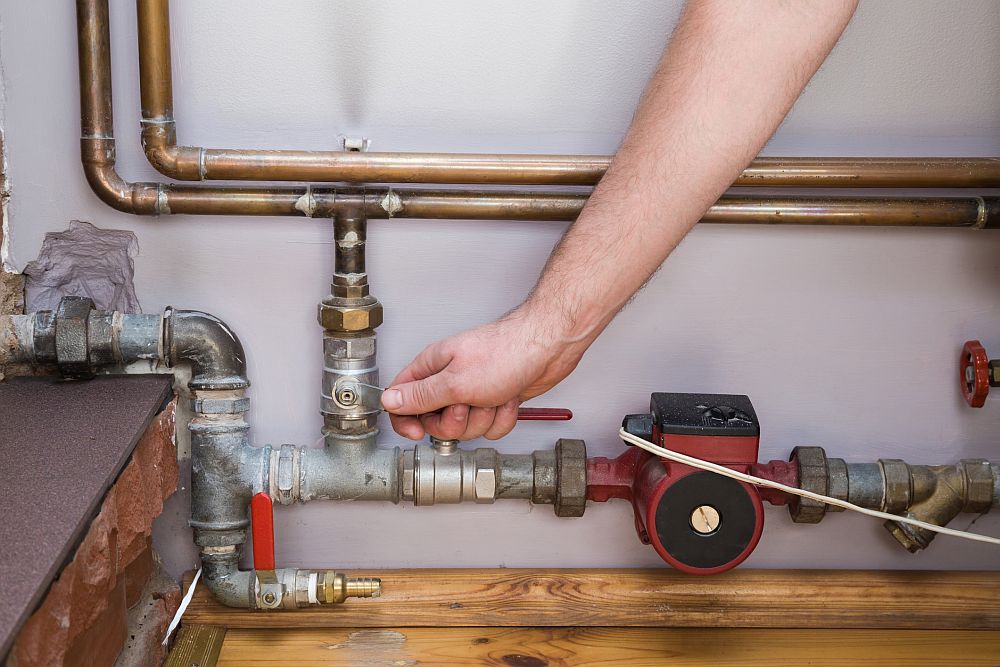
There are several factors to consider when buying a central heating pump. Flow rate, Speed, Noise, Overheating, and other factors all affect the price of central heating pumps. This article gives you valuable tips about central heating pumps and the different types of pumps available. By the end of this article, you should be able to choose the best one for your home. Listed below are some of the most important things to consider before buying one:
Table of Contents
Flow Rate
The flow rate of central heating pumps depends on the type of heating system. The speed at which water circulates depends on the type of boiler and the home’s layout. Depending on the system used, it can take from one minute to five minutes.
The flow rate of a central heating pump is measured in volume rather than velocity. Flow rate is a measurement of heat transfer, so the system’s flow rate is an essential factor in regulating the temperature in the home. It also determines the water flow rate in a system with many pipes. You may browse central heating pumps online at Plumb2u.com to learn more about them.
Speed
The speed of a central heating pump can affect your heating system’s effectiveness and cause the pump to overheat. Therefore, reducing the speed of your pump can help you cut down on electricity bills. To find the right speed, first, determine if the water leaving the boiler and going back to the radiators is different in temperature. If the difference is too large, the boiler will overheat and cut itself off. Also, if you want to reduce the speed of the pump, you should test the radiators and see if they are heated up enough.
Modern central heating pumps have speed controls that allow you to adjust their speed. The lowest setting produces a sluggish flow rate. To minimize noise, turn down the speed switch to lower the setting. Depending on the temperature of your radiators, you might need to turn down the flow switch or increase the speed to adjust the temperatures.
Noise
When your heating system starts to make noises, you may have problems with the pipes and your central heating pump.
Check your pump’s RCD if you’re still experiencing noises from your central heating pump. It is usually located near your electricity meter or in an airing cupboard. If it is working correctly, there’s no reason to worry – your pump is probably fine. If the pump is causing excessive noise, it’s likely to be the cause of the problem. Alternatively, it may be due to a faulty thermostat.
If the noise is from your central heating pump, check to see if it’s the thermostat or the system. The heating pump may be overly fast, or the thermostat may be too high. If you notice any unusual noises coming from your central heating pump, you should take immediate action to prevent any further damage to them.

Overheating
If you’re experiencing overheating in your central heating system, it’s likely that the pump is not functioning correctly. In some cases, a blown fuse may have been the cause. In other cases, a blown seal could be the culprit. Either way, a Gas Safe Registered engineer can check the pump and repair it if necessary. Lastly, if the pump is not functioning correctly, there is likely a problem with its wiring or connection.
Installation
Installing central heating pumps can be tricky. In some cases, you can have your pump installed in an airing cupboard or a small, obscure area like a basement. The basics of the installation process are the same, however. Ensure you have the right tools and take a photo of the wiring schematic to help you with the job. Before you begin, make sure that you have shut off the electricity and water supplies, and double-check the shutoff valve to make sure nothing is tripping over your wiring.
A common issue is a leaking pump. You should contact a qualified engineer immediately if you suspect your central heating pump is leaking water.
Proper installation of heating pumps should follow the guidelines for installing air-conditioning units. Make sure the rotor shaft of your pump is horizontal. If not, you risk forming air pockets on the shaft, leaving the bearings without sufficient cooling and lubrication. Additionally, the water should flow in the direction indicated on the pump casing. Finally, it would be best to seal any joints and threaded connections with sealants.
